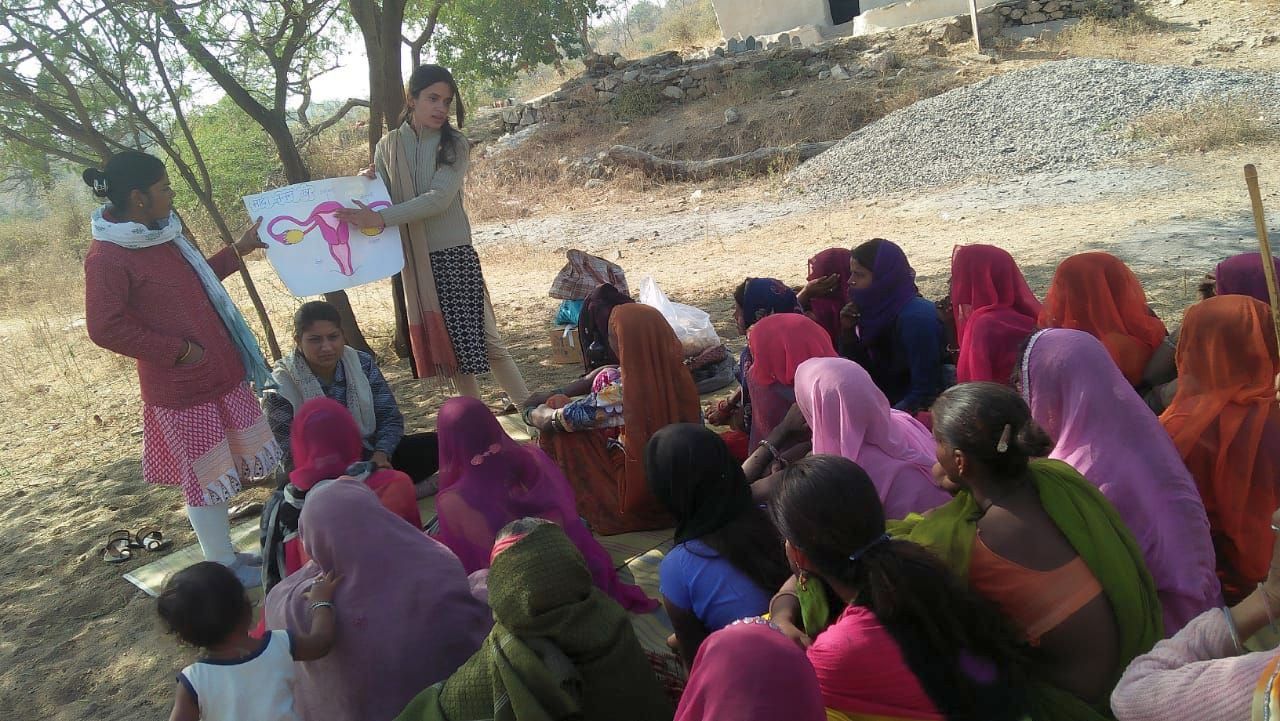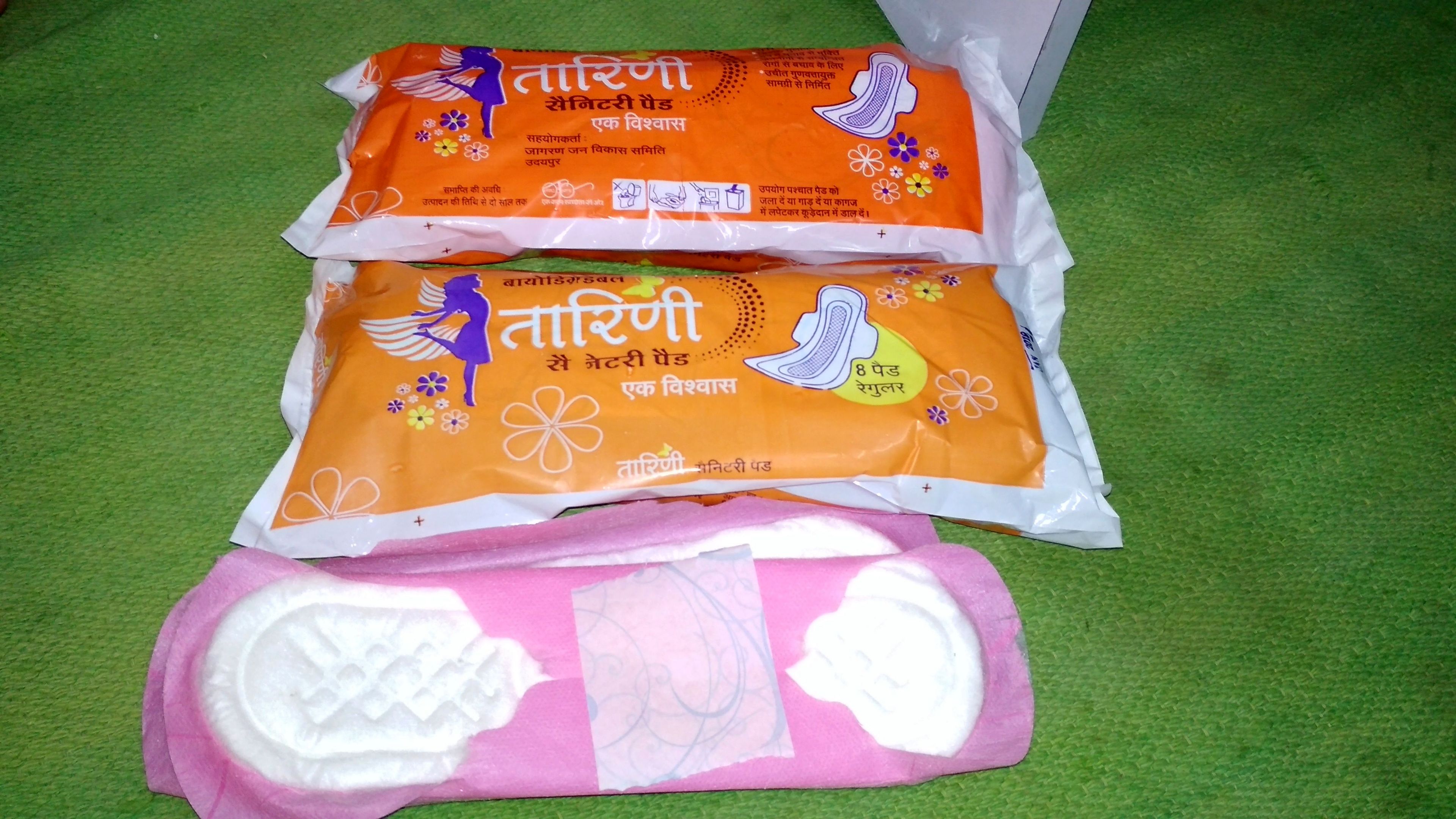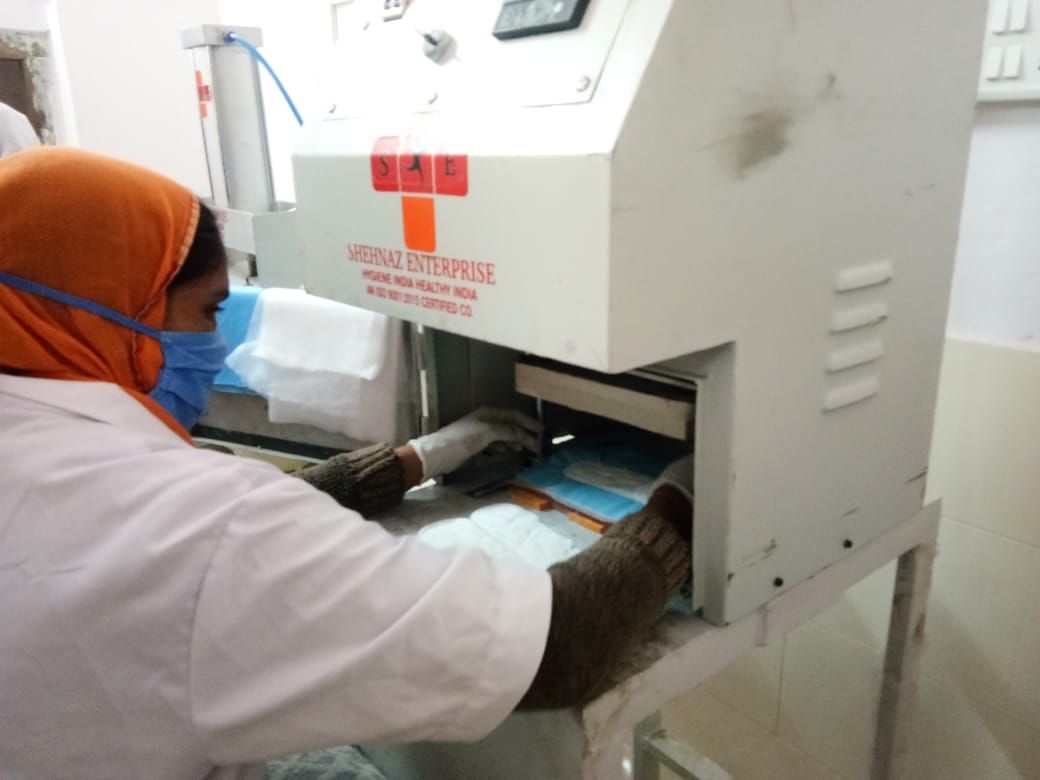Leela Patel (19) explains how women at Wali, a tribal gram panchayat in Kurabad block, just 30 km away from Udaipur, manage menstruation by using old scraps of cloth. She’s aware of cases when women have had to use ash, dust and soil to soak up their periods. Buying a pack of sanitary pads is a luxury in this poverty-stricken belt. Despite cramping and pain, women here would hide it away and pretend like it doesn't exist. The sign of misogyny, of the feminine as the other, is dominant in the area. Menstruation is considered dirty and disgusting. “There's a long history of menstrual taboos across nearly all cultures and these continue to manifest in subtle ways in this area as women find it difficult to even dry their washed lal kapda (menstrual cloth),” says Anushree Bapna, project manager, Female Health Project, Jagran Jan Vikas Sanstha (JJVS), Udaipur.
The JJVS has, as a part of a recent initiative, launched a sanitary pad manufacturing unit in Wali village that produces sanitary pads at a low cost. Though Rajasthan government has taken a lead in promoting menstrual hygiene by announcing the launch of a new scheme across the state’s rural areas to help provide free sanitary napkins to girls and women, through schools, colleges, anganwadi centres, sub-health centres and annapurna stores, there are issues related to its implementation. Its campaign—chuppi todo, sayani bano (break the silence and grow up) gained traction among adolescent girls in government primary and secondary schools but left out most other women in the rural areas.

Tackling health and hygiene issues
“A study we did on women’s health in 2016 indicated that they face acute health and hygiene problems such as boils, severe itching, fungal infection and contact dermatitis. The study done on 256 women indicated that there was practically no use of sanitary pads until then. Ninety percent of the incidence of diseases like leucorrhea (vaginal discharge) was reported among women. That set us thinking on introducing better menstrual hygiene practices and in May 2018, we started the manufacture of low-cost sanitary pads,” says C.P. Patel, an ayurvedic doctor working on the project.
In each of the five gram panchayats taken up under a female health project, over 11000 women have been targeted under the project. The JJVS is working on the promotion of local health workers, such as Gunis, to expose traditional tribal practices and organises health camps regularly. The members of women self-help group (SHG) too have been roped in. “The facilitators have been handed over the task of spreading awareness on the importance of sanitation and menstrual hygiene. They have been trying to break the taboo around the issue and encourage women to purchase a pack of sanitary napkins and keep themselves clean and safe during periods. The target group is girls and young women (9-19), who are showing greater interest in switching from cloth to safer menstrual pads,” says Bapna.

“The JJVS has been trying to close the gap in knowledge about menstruation and hygienic practices among women and girls. This was leading to increased health risks, absence from school and work, and loss of dignity. We recognised the impact of poor menstrual hygiene on the overall health of women and introduced it as a core component of our female health project,” says R.K. Deshwal, an ayurvedic doctor working on the project. The initiative focuses on enhancing access and use of sanitation at the household, school and community levels. Our focus is on hygiene promotion, behaviour change and capacity building of women, says Deshwal.
The cost of the machine, which is semi-automatic and easy to operate is Rs 1,00,000. The unit has the capacity to produce 1200 biodegradable sanitary pads in a day. “The effort is to bring down the cost of manufacturing by half from Rs 2.5 per pad at present that can barely cover the material cost. The plan is to run the unit to its capacity,” says Bapna.

Creating job opportunities
Leela Patel is among the five women who have been employed in the unit. Leela, from a low-income family, was trained to work on the set of five machines in the unit. Working in the unit has helped her get a livelihood apart from improving her confidence. Today she is open about her menstrual needs and feels no shame discussing it.
Women have begun to break the taboo and are speaking freely about menstrual hygiene. At the discussions in the women’s self-help groups, topics covered include the process of menstruation, how to manage menstruation hygienically, the importance of tracking the cycle, myths and taboos, types of hygienic pads and other absorbents and proper disposal of menstrual waste. The attempt has also been to include the whole community, especially men, in breaking the silence on the subject of menstruation and management.
“Creating the platform between pad manufacturing unit and the community poses the biggest challenge,” says C.P. Patel. The pads have been tested by many users in the field over the last year and were found to not cause any skin rashes or allergies. “We are not pushing it as an aspirational product but as a safer option. A very important component of our initiative is to dispose of sanitary waste safely. We are conscious of the environmental impact of non-compostable, disposable sanitary napkins, so, our facilitators provide sufficient information on safe and hygienic disposal methods to the women,” says Bapna.













